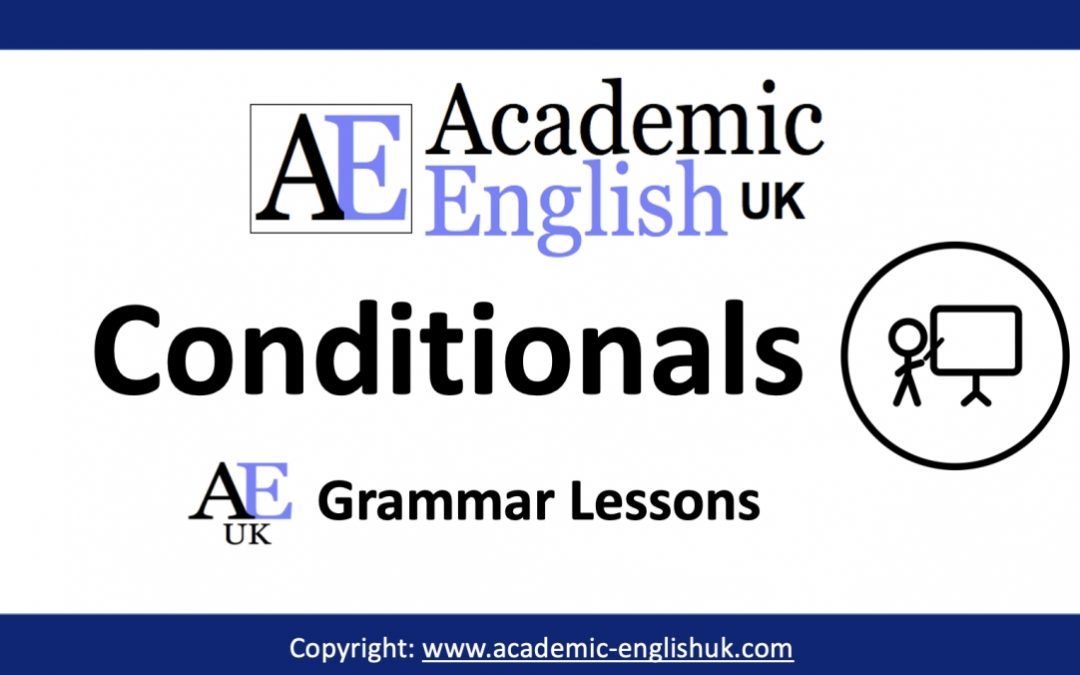
by AEUK | Aug 8, 2022 | Grammar
GRAMMAR / Conditionals Academic Conditionals What are conditionals?Conditionals in academic writingConditional examples What are conditionals / if clauses? Conditionals are used to describe the result of a real or hypothetical condition. There are four main types of...
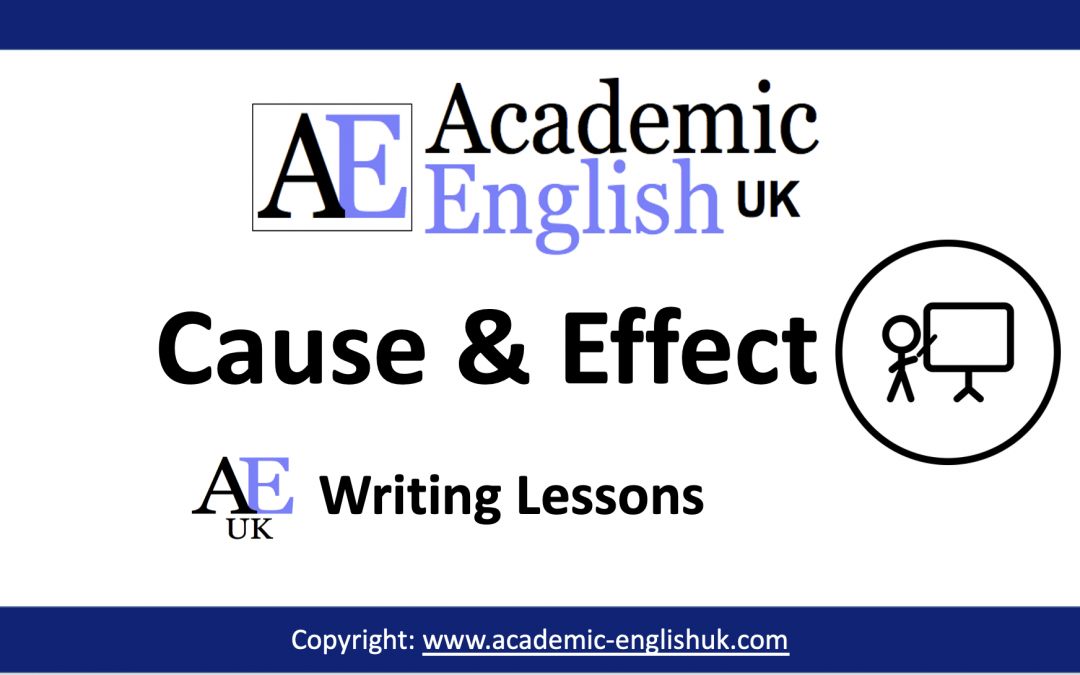
by AEUK | Jul 15, 2022 | Grammar
Cause and Effect Language What is Cause & Effect? Cause and effect is a relationship between events or things where one is the result of the other or others. This is a combination of action and reaction. Something happens (a cause) that leads to an effect. In...
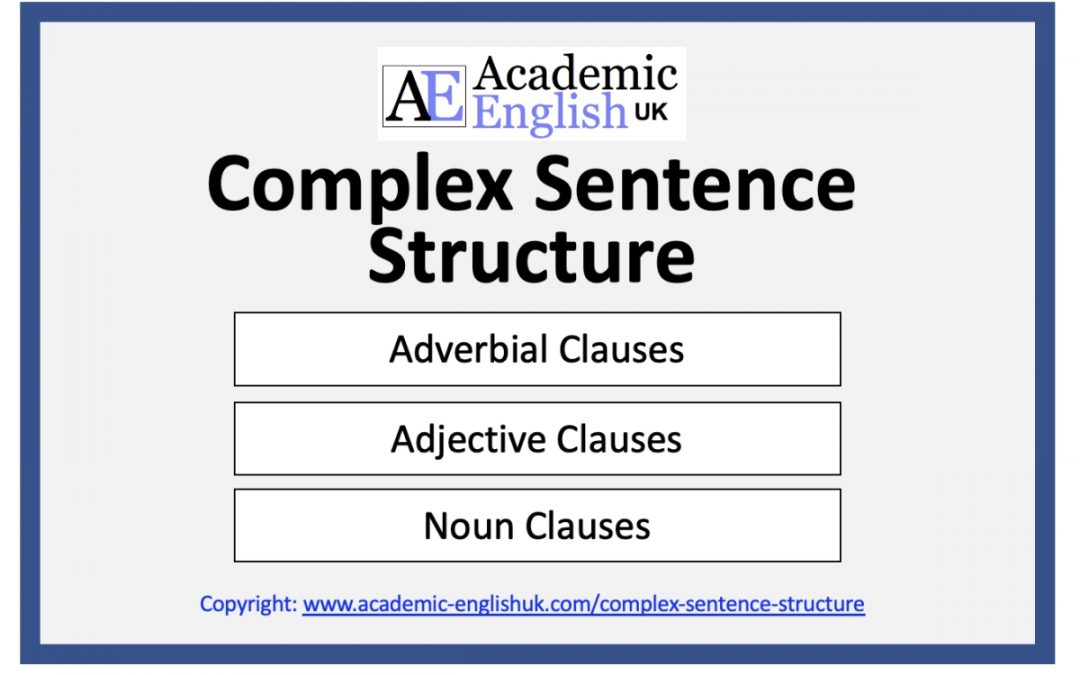
by AEUK | Jun 6, 2022 | Grammar, Writing
Complex Sentence Structure What is a complex sentence structure? A Complex sentence is an independent clause connected to one or more dependent clauses using a subordinating conjunction (despite, although) or a relative pronoun (who, which). Three types of complex...
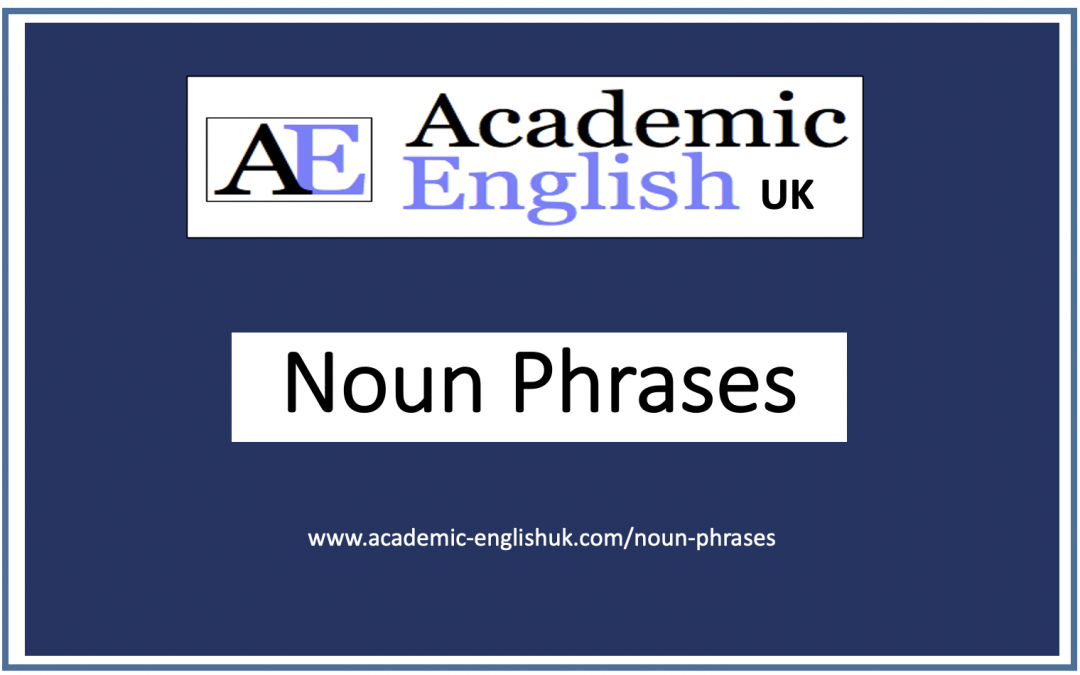
by AEUK | Apr 10, 2022 | Grammar
Noun Phrases What are noun phrases? Noun phrases (grouping together a collection of words to act as one noun) are one of the keystones of academic writing. Noun phrase is making the meaning of a noun more precise from the words immediately before (pre-modifying words)...
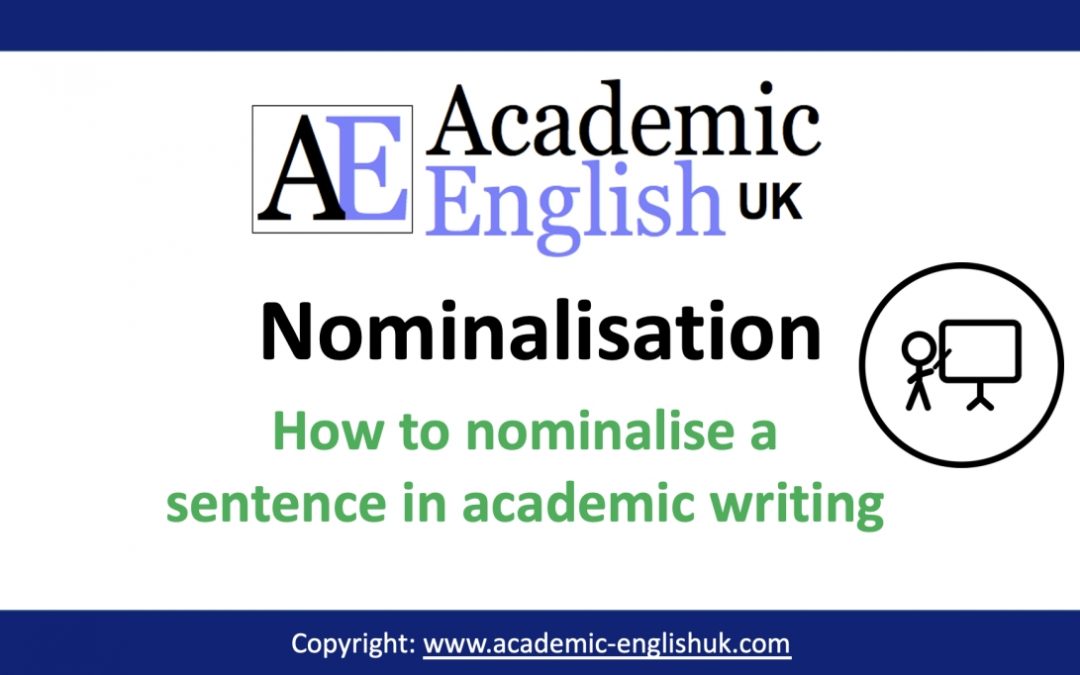
by Admin | Mar 7, 2022 | Grammar, Vocabulary, Writing
Nominalisation – how to nominalise in academic writing. What is nominalisation? Nominalisation is the process of changing verbs or adjectives to nouns. Why use nominalisation? The nominalisation grammatical process develops complex grammar noun-phrase...
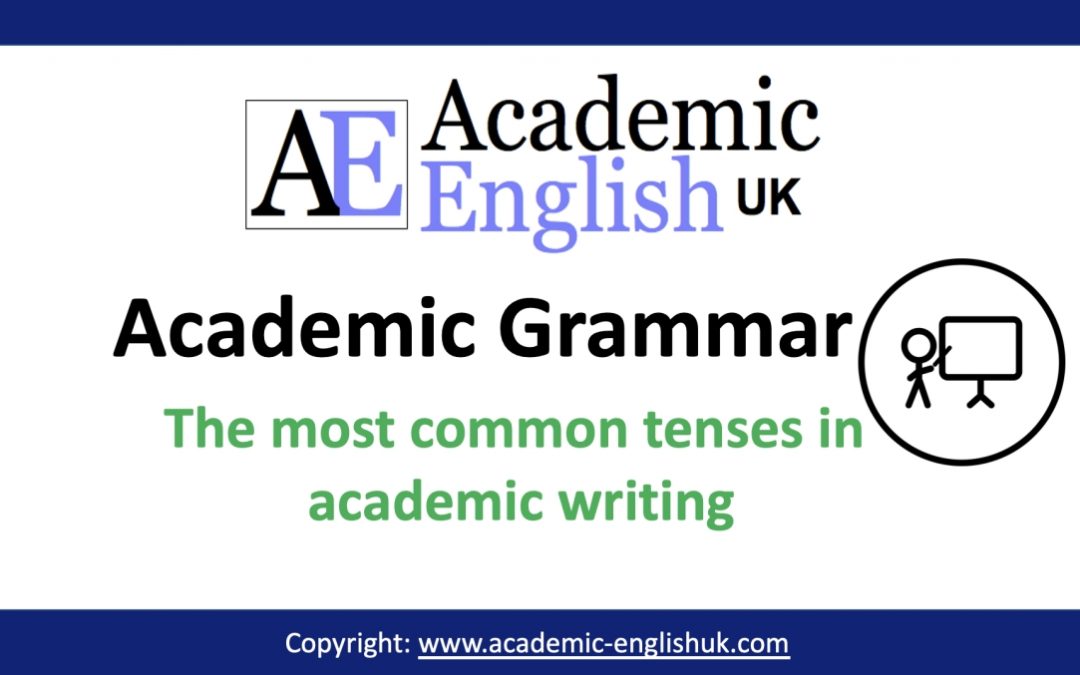
by AEUK | Nov 27, 2021 | EAP Teacher, Grammar
Academic Grammar What are the most common tenses in academic English? According to corpus research, in academic writing, the four tenses used the most often are present simple, past simple, present perfect simple and future simple (will) (Biber et al., 1999; Caplan,...
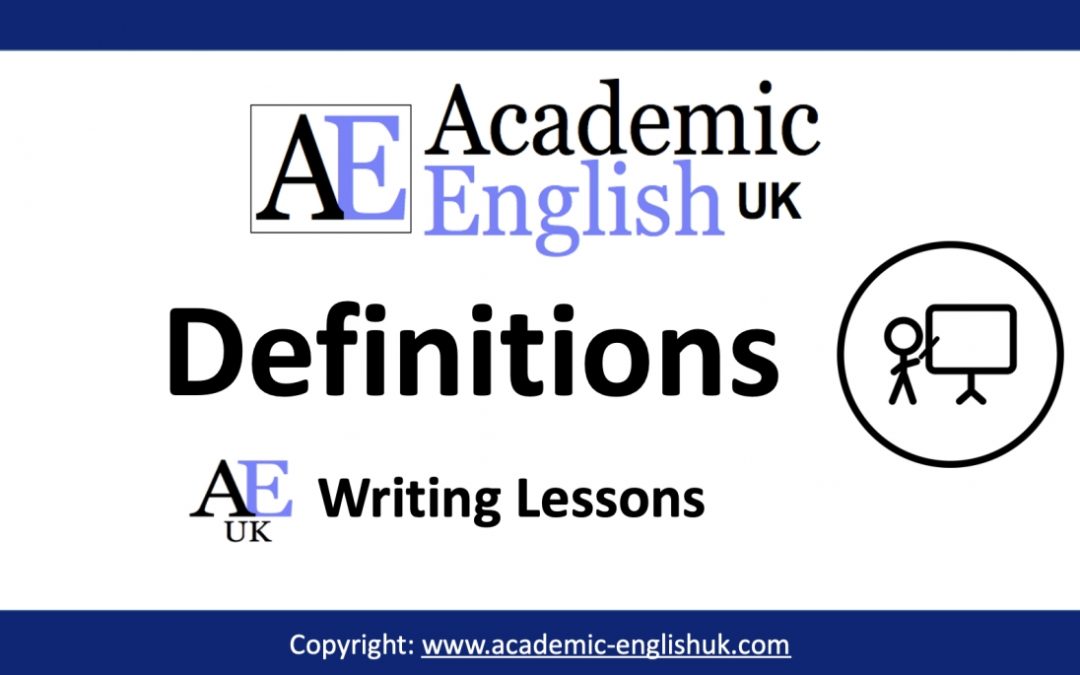
by AEUK | Jul 3, 2021 | EAP Teacher, Grammar, Writing
Academic Definitions What are academic definitions? Academic definitions are statements explaining the meaning of a word or phrase. Definitions show that you understand key terms and ensure that there is no misunderstanding with your audience. Academic definitions...
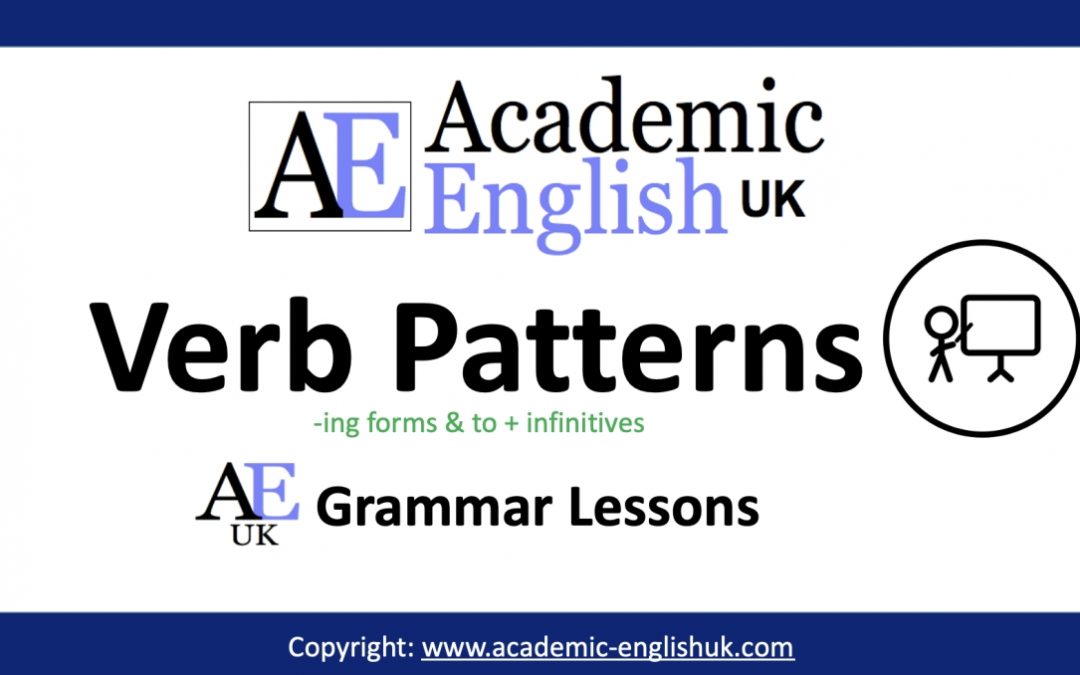
by AEUK | Mar 19, 2021 | Academia, EAP Teacher, Grammar, Lessons, Reading, Writing
GRAMMAR / Verb Patterns Academic Verb Patterns Terms & Conditions of Use What are verb patterns? A verb pattern is when one verb follows another in a single clause. The former verb dictates how the latter verb will be used. There are five main verb patterns in...
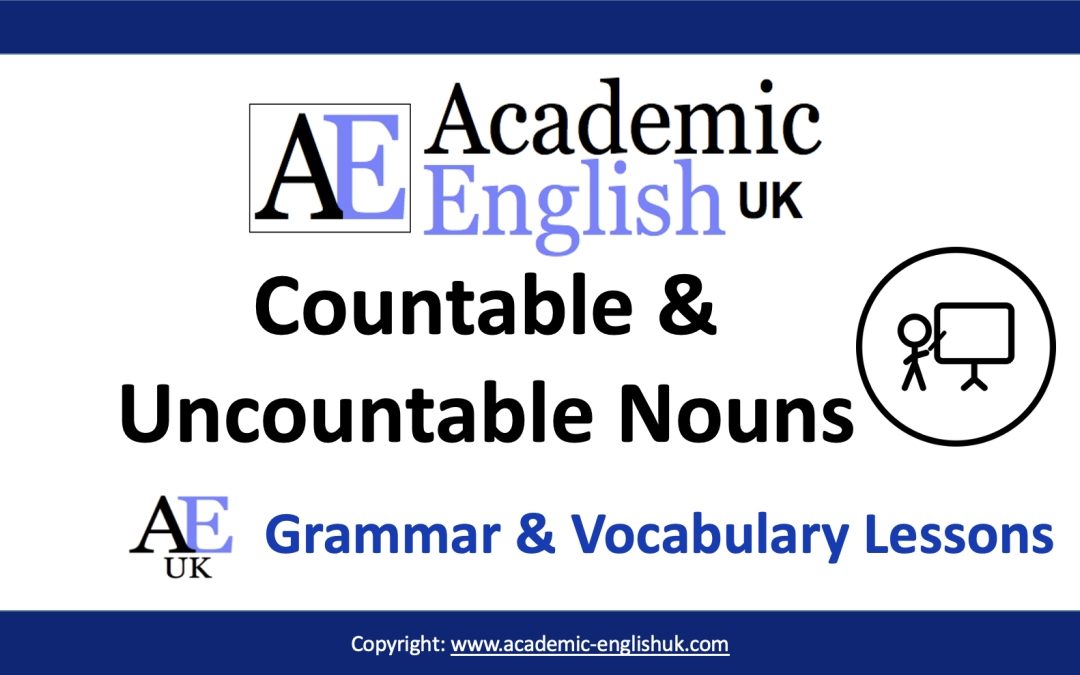
by AEUK | Mar 7, 2021 | EAP Teacher, Grammar, Lessons, Reading, Vocabulary, Writing
GRAMMAR / Un/countable nouns Academic Countable & uncountable nouns Terms & Conditions of Use What are countable and uncountable nouns? Countable (or count) nouns refer to something that can be counted, such as equations or people. They have a singular and...
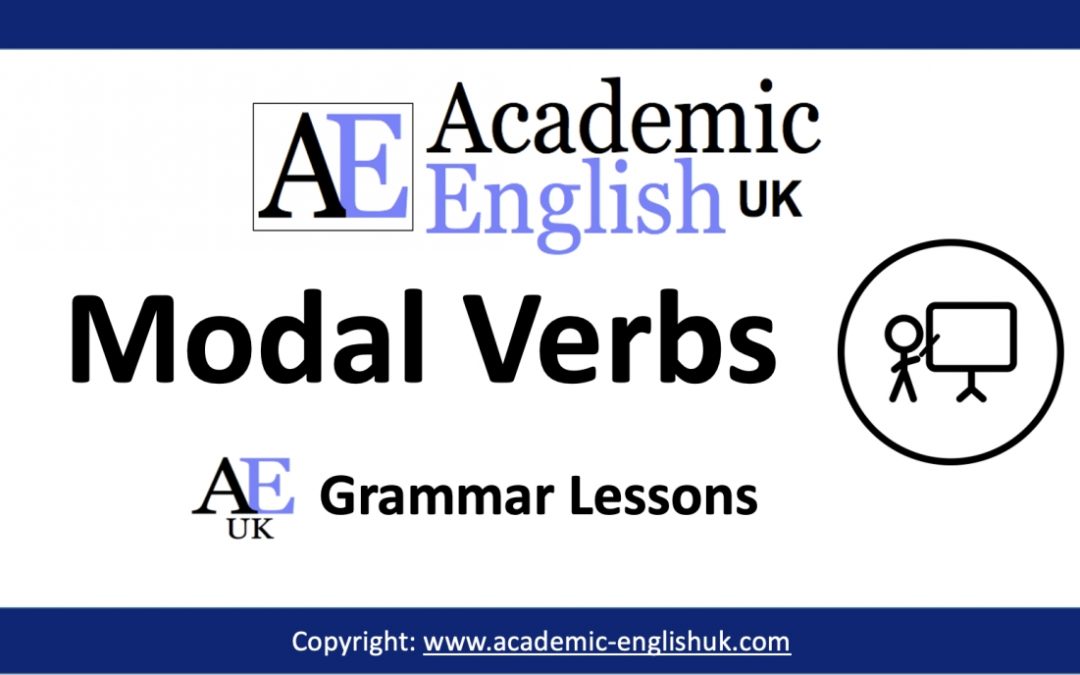
by AEUK | Feb 15, 2021 | Grammar, Writing
GRAMMAR / Modal Verbs Academic Modal Verbs Terms & Conditions of Use What are modal verbs? Modal verbs are used to express a certain attitude or perspective. They are classified as auxiliary verbs so they have no infinitive form, no gerund form, no past...

by AEUK | Dec 16, 2020 | Grammar, Lessons, Vocabulary, Writing
SKILLS / Writing / Vocabulary / Grammar Grammar Workshop Terms & Conditions of Use This webpage is a selection of grammar videos and free downloadable PDF exercises. It is mainly focused on general English grammar but is still important in building good grammar...

by AEUK | Jul 13, 2020 | Academia, Grammar, Reading, Referencing, Vocabulary, Writing
How students can exploit a text to support their learning What are reading strategies? Reading strategies are explicit approaches and techniques to improve comprehension of a written text. These reading strategies include skimming, scanning, surveying, highlighting,...

by AEUK | Jun 29, 2020 | Grammar, Writing
Sentence Structure What is sentence structure? Sentence structure is the way a sentence is constructed, grammatically. There are two types of clauses that create a sentence: independent and dependent. An independent (main) clause is a complete thought that can stand...

by AEUK | Jun 22, 2019 | EAP Teacher, Grammar, Speaking
Lesson ideas for Week 1 on an academic English course What should you do on the first week of an academic English course? This blog / webpage provides a number of resources suitable for the first week on an EAP course (Presessional, Foundation, or University English...
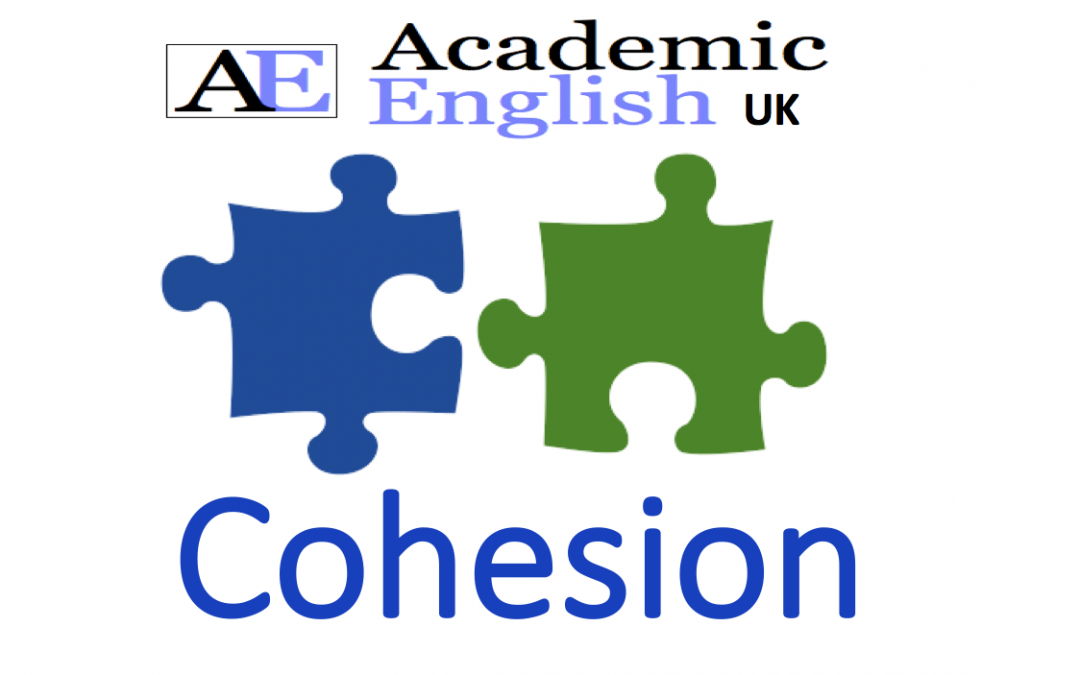
by AEUK | Aug 12, 2018 | Grammar
Cohesion What is cohesion? Cohesion refers to the way texts use grammar and vocabulary to ‘stick’ or ‘glue’ ideas together. This is done through articles (a/an/the), pronouns(it/this/these/that/those/etc..), word families (analyse/ analysis) / summary nouns...
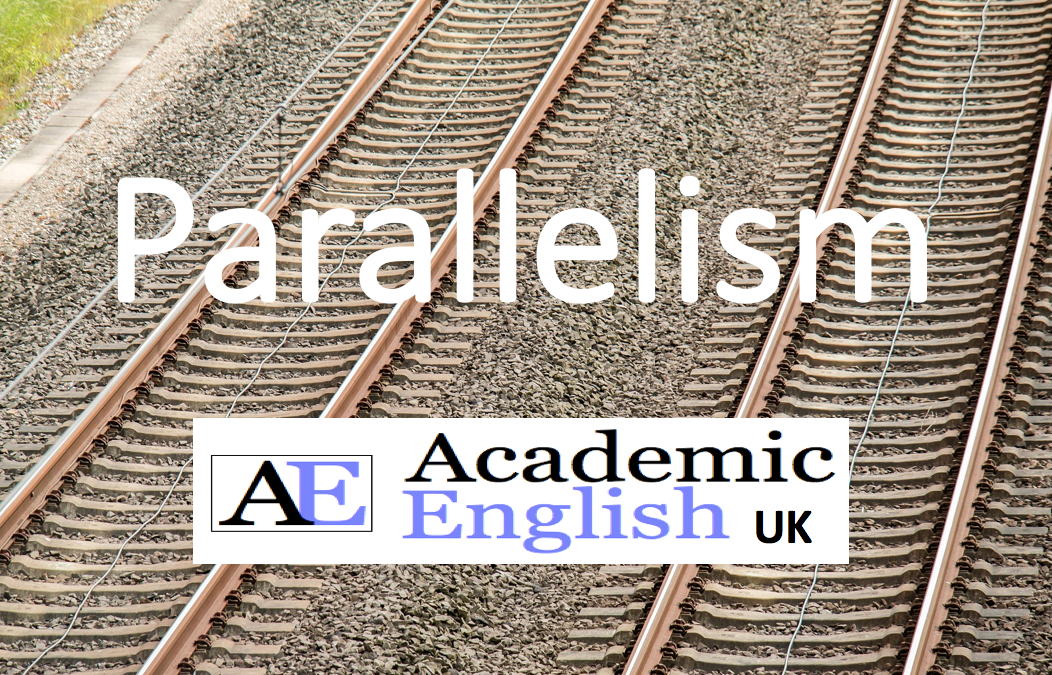
by AEUK | Jul 26, 2018 | Grammar
Parallelism What is parallelism? Parallelism is a similarity of grammatical form for similar elements of meaning within a sentence or among sentences. When pairing ideas, underscore their connection by expressing them in similar grammatical form. Paired ideas are...
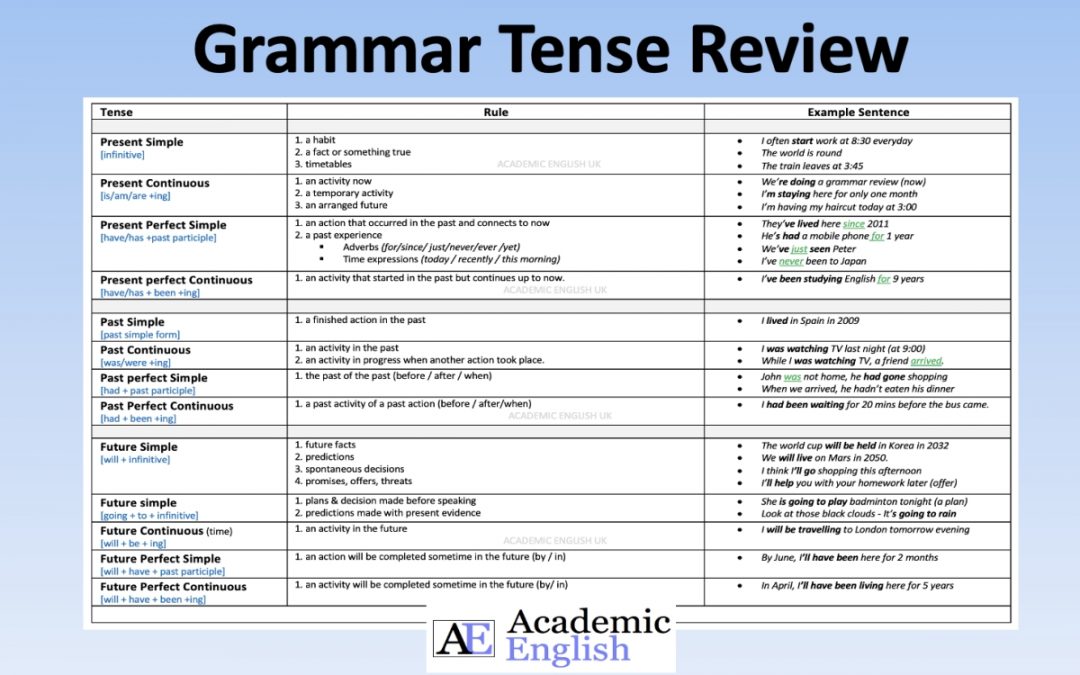
by AEUK | Dec 8, 2017 | Grammar
Academic Grammar Grammar Tense Review This blog is a lesson on the twelve tenses of English. It includes an easy to understand tense chart of the twelve tenses, their structure and a sample sentence for each tense. The lesson asks students to discuss different...

by AEUK | Jun 3, 2017 | Grammar
Passive Grammar is… …common in academic English because it helps to create formality, focuses on the object and develops an impersonal stance. This blog will look at impersonal passive structures (it is claimed / to + infinitive passive forms) and...
by AEUK | Apr 23, 2017 | Grammar, Writing
SKILLS / Writing / Vocabulary / Grammar Nominalisation What is nominalisation? Nominalisation is the process of changing verbs or adjectives to nouns. Why use nominalisation? The nominalisation grammatical process develops complex grammar noun-phrase structures....



















